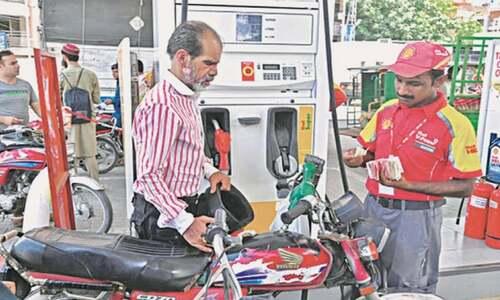
MARCH 23 was an occasion for soul-searching by civil society activists. In a meeting they demanded a new social contract to revive the spirit of the Lahore Resolution. The emphasis was on giving the underprivileged their due share in parliament and national resources.
The assumption is that a share in policymaking and the country’s wealth will empower the disadvantaged, that is, the majority.
It is, however, clear that inequity in society and the deep polarisation between classes will defeat any move to change the status quo. Those who benefit from it, naturally do not want to upset the applecart and forgo the advantages — not always legitimate — they have come to enjoy. They also control the levers of power.
Given the state of our democracy — the stagnation in political parties, the paralysis of the parliament and the failure of governance — is it possible to change the distribution of socio-political power in the country with a stroke of the pen? An enhanced presence of the underprivileged in parliament would be a futile measure as vested interests will block any move towards change.
Where can underprivileged children go for an education?
The demands by civil society activists, though a valid articulation of the need of the hour, offer no solution. The denial of the human rights of the poor cannot be denied. A beginning can be made by working for improvement in the spheres where change is possible.
Many well-meaning individuals would readily become involved in the process. Take the case of education. At a time when the privileged enjoy the benefits of quality education by virtue of their wealth, there are 25 million out-of-school children in Pakistan.
Article 25-A promises compulsory and free education to all children between five to 16 years of age. The government has failed miserably on this count and passed on its own responsibility to the private sector in a big way. But the greatest injustice is that the authorities at every level do not even facilitate those who want to help these children of a lesser god. Discrimination against the education of the poor is the worst crime society can be charged with.
The Defence Housing Authority in Karachi is home to a million people who are privileged in every way. Their children attend the best schools. Since DHA’s archaic laws do not allow schools to be opened in residential areas, land has been earmarked for the upscale schools in Phase VI. The residents, who all own cars, have no problem transporting their children to these centres of learning.
But as happens in every Third World country, there are the impoverished sections of the population — mainly migrants from the neglected rural areas — who earn their livelihood by providing cheap labour for the rich. The residents of DHA are also the beneficiaries of this phenomenon. Thus jobs have been created for the poor.
But employment is not the only need of the poor. They have to find solutions to other problems that plague their lives because the state has let them down. Thus for shelter they opt for katchi abadis (squatter settlements) on the periphery of the areas where the jobs are. In due course these abadis are regularised by the government under public pressure. That is how Neelum and Shah Rasool colonies emerged on DHA’s southern outskirts.
According to a conservative estimate, nearly half a million people live here, cramped in dingy spaces while they eke out a living by providing their services to their rich neighbourhoods.
Their children — at least 25,000 — are the forgotten generation whose schooling has been left to chance. The government has set up three schools and a college in the vicinity of these colonies. DHA runs a school there side by side with 12 or so small private schools managed by NGOs or by individuals charging fees ranging from practically nil to nearly Rs2,000 per month. They provide education to about 5,000 youngsters.
It is admission time now, which is also agony time for parents whose children are refused enrolment for lack of school capacity. Where should they go? Many are girls and all are young; they cannot be expected to walk long distances to schools far from their homes.
A sensible idea would be for DHA to earmark some land adjacent to these two colonies where free/low fee schools can operate. Many want space to build schools but DHA rules do not allow them to do that. There are vacant plots on which houses will never be built on account of their proximity to the commercial areas. For the same reason some houses lie vacant. Why can’t rules be changed to provide education to children of the underprivileged?
By focusing on education, we can find solutions to other problems as well. Some people are trying to do exactly that. More on this later.
Published in Dawn, March 31st, 2017









































